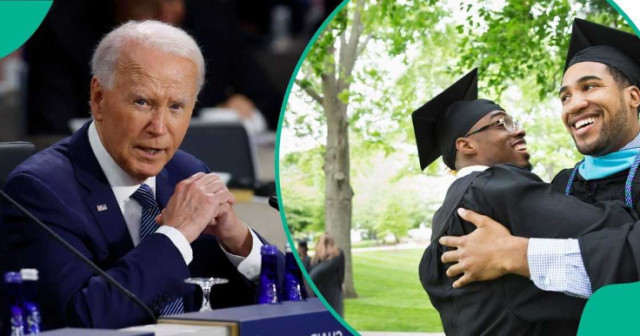The President Joe Biden administration on Tuesday announced a new step to speed up employment-based non-immigrant visas for US college graduates with job offers.
The initiative which would bolster US economy and retain top talents aims to streamline immigration processes and attract skilled workers to the the country.
By July 18, the Department of State will release new guidelines for consular officers on recommending that the Department of Homeland Security (DHS) approve waivers of ineligibility, a critical step in speeding up the visa application process while maintaining thorough screening and security protocols.
During the recent election season, the administration outlined plans to prioritise international students who graduated from US colleges and secured job offers, promising faster visa issuance if they meet the necessary criteria.
Employment-based non-immigrant visas, such as the popular H-1B visa, allow foreign nationals to work temporarily in the country. The visa process typically begins with the employer filing a petition for the worker.
Applicants initially denied visas are usually informed of the reasons for denial by the consular officer, and some may qualify for a waiver, providing another opportunity to obtain their visa.
The DHS and US Customs and Border Protection’s Admissibility Review Office handle these waiver requests.
Before applying for an H-1B or other temporary worker visa, employers must first receive approval for a Petition for a Non-immigrant Worker (Form I-129) from the US Citizenship and Immigration Services (USCIS).
Once approved, the prospective employee can proceed with their visa application, including completing the Online Nonimmigrant Visa Application (Form DS-160) and scheduling an interview at a US embassy or consulate.
In fiscal year 2023, USCIS and the Department of State issued over 192,000 employment-based immigrant visas, ensuring no visas went unused for the second consecutive year.




















